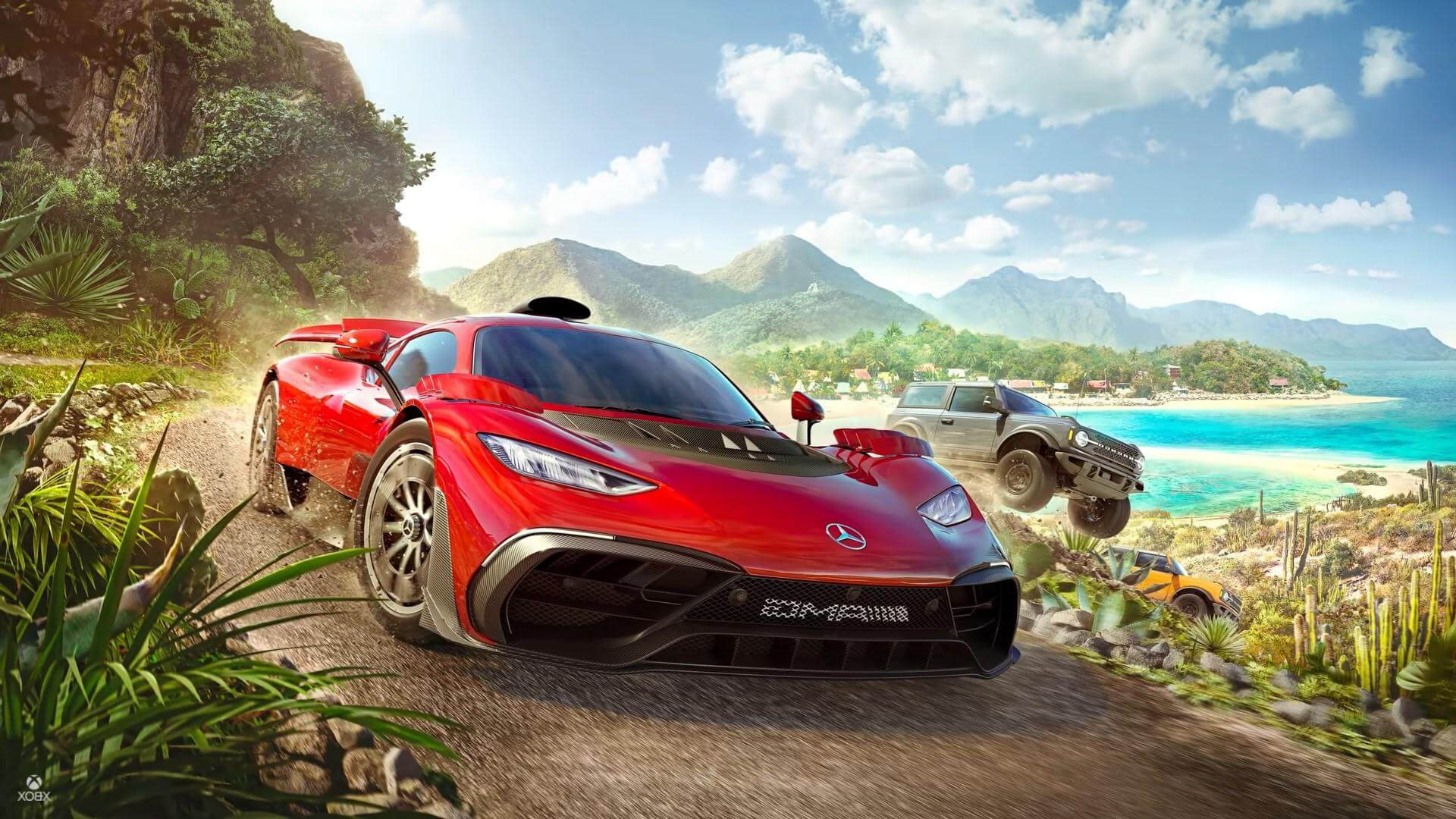In this episode hosts Mark Kilborn & Timothy Muirhead talk with Playground Games’ Audio Lead Fraser Strachan, about the amazing work he and his team did on the sound design of Forza Horizon 5. Fraser discusses in deep detail the process of recording hundreds of cars and their implementation in the the game. We also discuss the ambiances, the games acoustic system, and generally how to mix a game with car engines roaring at all times.

“I’ve kind of shifted to trying to do as little as possible to the car effects as we can, because we used to do a lot of stuff where we would like, smash some distortion on it, or we would EQ the hell out of some of the channels. But the thing is, most cars actually sound great! If you get the right sounding car with some custom exhaust and stuff. When you’re out on the track, you’re like, that sounds absolutely killer.”
10:12 into this episode
Tonebenders would like to send out a giant THANK YOU to Zane Deso for volunteering to edit and mix this episode. It was great working with you Zane!
__________________________
The Following is a lightly edited and repaired, A.I. generated transcript of Tonebenders episode 184 – Forza Horizon 5 with Fraser Strachan. Please excuse any typos or translation mistakes made by the algorithm .
Tim Muirhead/Host
Mark Kilborn/ Host
Fraser Strachan/ Audio Lead on Forza Horizon 5
__________________________
Narrator 0:17
You’re listening to Tonebenders the sound designers podcast. Let’s Do this
Timothy Muirhead 0:29
Hello and welcome to Tonebenders. My name is Timothy Muirhead and I will be your host for today. Co-hosting with me is Mark Kilborn. How are you doing today, Mark?
Mark Kilborn 0:36
I’m great, man. Thanks for having me again. It’s always fun.
Timothy Muirhead 0:40
No problem. listeners will remember mark from recent episodes we did on gear obsession and talking about the game Returnal. We’re going to go back down the rabbit hole of video games when we talk about the new Forza Horizon 5, the latest racing game in the franchise. This one takes place in Mexico. Joining us to talk about it is Fraser Strachan from playground games in the UK. Fraser is the audio lead on the game. Welcome to Tonebenders Fraser.
Fraser Strachan 1:02
Hey, Tim. Thanks for having me.
Timothy Muirhead 1:04
Mark, you’ve played the game a lot. I think in the last couple of weeks. What are your first impressions of it?
Mark Kilborn 1:08
Well, it’s great, but I’m a little biased, because I love everything Forza. But no, it’s it’s a lot of fun. I was telling a friend recently, I feel like with every Horizon iteration, they’ve incrementally just upped it a little more, a little more, a little more and just gotten a little bit better. And this one, they want a little more than a little more. And they finally gotten it to the level where it’s just like a an amazing game. And it’s getting universal acclaim from critics and fans, which is totally deserved. It’s it’s my game of the year so far. It’s a great game. So highly recommended. Everybody should check it out. Even if you’re not normally into racing games, it is pretty incredible.
Fraser Strachan 1:48
Cool. Thanks Mark makes it sound like Tonebenders is sponsoring the podcast or something
Mark Kilborn 1:52
It kind of does, and I swear they’re not. But it’s just it is genuinely a lot of fun.
Fraser Strachan 1:57
Great. Well, yeah, we have a we have a lot of fun making the game as well.
Mark Kilborn 2:00
Fraser thanks for being here, I have a number of things I want to ask you about. Especially because I haven’t looked at a Forza game from the inside and a long, long time. But the first thing I wanted to ask you is for I know a lot of our listeners are linear sound designers or game sound designers. But I don’t think many will have actually worked on a racing game that has the level of detail that a game like Forza has. So I am curious if you could just give kind of a quick overview of how the sound system for the vehicles works, and how it uses data fed to it by the physics of the cars to change things. And I know that’s a huge conversation, but give us kind of the summary of what’s going on under the hood so to speak.
Fraser Strachan 2:41
Yeah, it’s it’s a big answer to that question, I guess, but one that I naturally understand having, you know, I joined Playground Games about eight years ago now. And you know, back then I had no idea how any of it worked either. And it’s taken me a long time to really get to grips with exactly how everything works and and understand what each of the parts are, you really can break down cars into a million different pieces, like trying to understand how an actual internal combustion engine, you know, works every different level where where it’s making sound, what physics values actually change the sound, because there’s a lot about how a car works, that we can kind of just chuck in the bin, we don’t need to worry too much about how that’s gonna affect the actual sound of the car. But there, there can be a million different things that we have parameterizing the cars at any one time be that torque level, perhaps it’s the boost value that we have on a turbo so like how much that spills up, the main one being RPM of the actual engine, which drives both the sound of the engine and the exhaust, but we have tons of other things like transmission whine, which works completely independent of that. So you know, without going into too many boring details, which even I find boring when I speak to a lot of the physics people on our team. But you know, we probably have 20 to 30 different parts all doing completely different things at once, when we have a car playing in the game. And that makes it really both a hard thing to do the sound for even if it was just one car. But when you have 500 cars and a game like Horizon, it’s like, well, how do we…. both how do we make every single car sound different? But how do we somehow like keep that kind of uniform across the board because my brain would just explode if we were if we were doing everything differently for every single car that we had to work on. There’s lots of stuff to consider. But I think once you start to whittle it down to the 10 or 20 kind of top items, then you can sort of simplify it and it’s slightly easier to get your head around.
Click on Page 2 below, to read the rest of the transcription of this episode.
Pages: 1 2

